Life
Sign up for our newsletter
We summarize the week's scientific breakthroughs every Thursday.
-
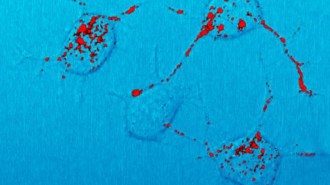 Life
LifePrions clog cell traffic in brains with neurodegenerative diseases
Prions may derail cargo moving inside brain cells, perhaps contributing to cell death in prion diseases.
-
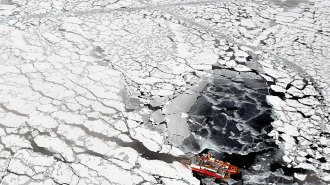 Climate
ClimateHow the Arctic’s poor health affects everyday life
A new NOAA report features testimony from indigenous communities in Alaska who are weathering the impacts of Arctic warming.
-
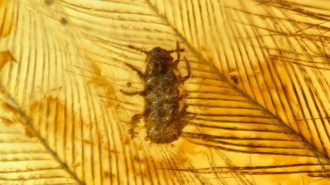 Paleontology
PaleontologyLicelike insects munched on dinosaur feathers around 100 million years ago
Fossils in amber push the origin of feather-feeding insects back over 50 million years, a study finds.
By Sofie Bates -
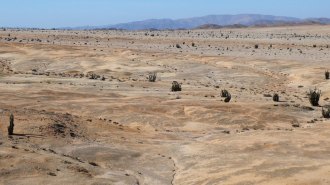 Ecosystems
EcosystemsA newly found Atacama Desert soil community survives on sips of fog
Lichens and other fungi and algae unite to form “grit-crust” on the dry soil of Chile’s Atacama Desert and survive on moisture from coastal fog.
By Jack J. Lee -
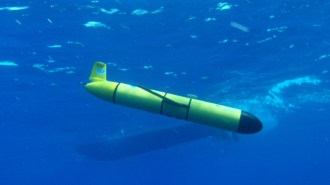 Oceans
OceansStealthy robots with microphones could improve maps of ocean noise
Recordings from underwater microphones on stealthy robotic gliders could create a better “soundscape” of noises throughout the ocean, researchers say.
By Sofie Bates -
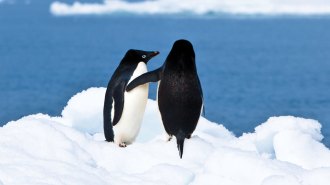 Science & Society
Science & Society‘A Polar Affair’ delves into a centurylong cover-up of penguin sex
In a new book, Lloyd Spencer Davis seeks to understand why an Antarctic explorer kept some of his penguin observations a secret.
-
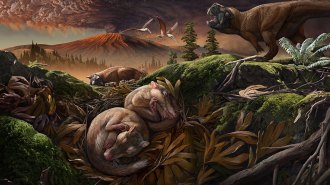 Life
LifeAn ancient critter may shed light on when mammals’ middle ear evolved
Rare skeletons are helping to pin down the evolution of mammals’ three middle ear bones, known popularly as the hammer, anvil and stirrup.
-
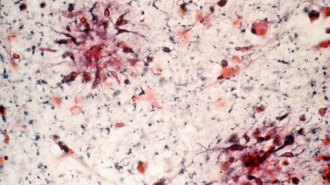 Health & Medicine
Health & MedicineA once-scrapped Alzheimer’s drug may work after all, new analyses suggest
An antibody that targets Alzheimer’s sticky protein amyloid showed promise in slowing mental decline, according to the company that’s developing it.
-
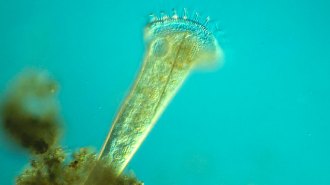 Life
LifeA single-celled protist reacts to threats in surprisingly complex ways
New research validates a century-old experiment that shows single-celled organisms are capable of complex “decision making.”
-
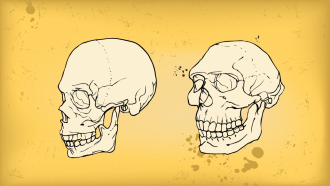 Humans
HumansA gene tied to facial development hints humans domesticated themselves
Scientists may have identified a gene that ties together ideas about human evolution and animal domestication.
-
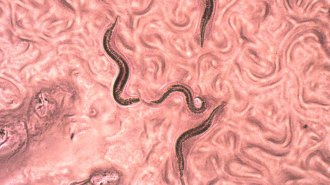 Animals
AnimalsDevil worm genes hold clues for how some animals survive extreme heat
Devil worms have many extra copies of genes tied to heat stress and cell death, which may help the critters survive deep underground, a study finds.
By Sofie Bates -
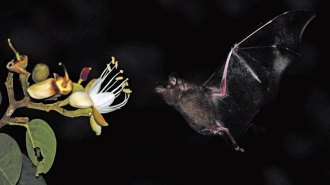 Life
LifeA tree in Brazil’s arid northeast rains nectar from its flowers
Northeast Brazil is home to a tree that entices bat pollinators by making a “sweet rain” of nectar.
By Jake Buehler